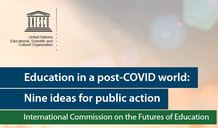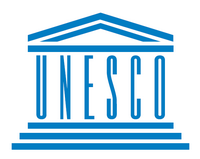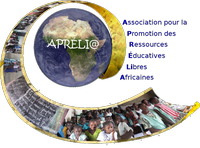Unesco En
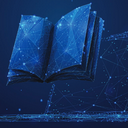 Source : UNESCO
Source : UNESCO
While the COVID-19 pandemic has created an unprecedented challenge for educational systems worldwide, it also brought much needed attention to the importance of connectivity and the use of digital technologies for teaching and learning in an open schooling context. Some 3.6 billion people still have no access to the Internet and 250 million children are still out of school.
A new report published by the Broadband Commission looks into school connectivity and introduces a methodology and framework for mapping and connecting primary and secondary schools to the Internet.
The report is the result of a working group co-chaired by the ITU, UNESCO and UNICEF and aims to help governments, their partners and interested stakeholders to develop more holistic school connectivity plans.
- Détails
- Écrit par : G. Puiségur
- Catégorie : Unesco En
- Clics : 1573
 Source : UNESCO
Source : UNESCO
UNESCO will host a virtual presentation and discussion of the measures, best practices and achievements implemented by its newly created Global Education Coalition in helping countries ensure education continuity during the COVID-19 pandemic, on Friday, 25 September, 10am to 11:30am, New York time (UTC-4).
The event, Education During Covid-19 and Beyond: The Global Education Coalition in Action, held within the framework of the United Nations General Assembly, will be hosted by the Director-General of UNESCO, Audrey Azoulay, who initiated the Global Education Coalition in March this year to respond to the educational challenge of COVID-19 which, at its worst, kept 1.6 billion learners worldwide out of the classroom.
The event will present the progress report about UNESCO’s Global Education Coalition achievements and discuss lessons learned in responding to requests from more than 70 countries during the pandemic with a view to rethinking the future of education.
In Senegal, for example, the Ministry of Education, UNESCO and Coalition members, Microsoft and Huawei, joined forces to support tens of thousands of teachers and students to continue learning. 82,000 teachers and 500,000 learners enrolled on the Ministry’s Distance Learning Platform and a further 1.5 million learners and teachers are expected to sign up with support from Microsoft. UNESCO is supporting training for 200 teachers to be ‘master trainers’ and Huawei has provided devices to improve their connectivity.
- Détails
- Écrit par : G. Puiségur
- Catégorie : Unesco En
- Clics : 1445
 Source : UNESCO Regional Office Abuja
Source : UNESCO Regional Office Abuja
Within the framework of marking the International Literacy Day (ILD) 2020, the UNESCO Regional Office Abuja is organizing two virtual regional workshops on the importance of innovative youth and adult literacy programs in the midst of the Covid-19 pandemic and beyond and on the contextualization of the UNESCO Strategy for Youth and Adult Literacy in countries in sub-Saharan Africa. The workshops will be organized in collaboration with UNESCO International Institute for Capacity Building in Africa (IICBA), with support of the UNESCO Institute for Lifelong Learning (UIL) Hamburg and the UNESCO Regional Offices in Dakar, Harare, Nairobi and Yaoundé.
- Détails
- Écrit par : G. Puiségur
- Catégorie : Unesco En
- Clics : 1457
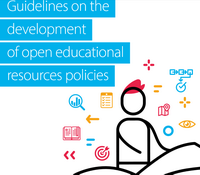 Source : UNESCO
Source : UNESCO
Foreword by the Assistant Director-General for Education, UNESCO :
Over the last 20 years, the concept of open educational resources (OER) has evolved from a loosely defined term for freely accessible courseware to being a part of programmatic strategies now included in many governmental and institutional policies for expanding access to education, enhancing quality of learning and opening lifelong learning opportunities for all.
At every step of the way, UNESCO has been – and continues to be – committed to its role as a convener of international collaboration for promoting OER. In fact, the term ‘OER’ was first coined at UNESCO in 2002. Ten years later, the 2012 Paris OER Declaration recommended ways for Member States to promote the use of OER. OER’s role in increasing the quality and accessibility of teaching and learning as well as fostering knowledge creation was then further articulated in the Incheon Declaration and Qingdao Declaration of 2015.
More recently, in 2017, more than 100 Member States signed up to the Ljubljana OER Action Plan, which lists 41 recommendations to mainstream OER, underlining the importance of strong policies for the implementation of OER.
- Détails
- Écrit par : G. Puiségur
- Catégorie : Unesco En
- Clics : 783
Lire la suite : Guidelines on the development of open educational resources policies
UNESCO is pleased to announce that the online edition of Mobile Learning Week 2020 will be held from 12 to 15 October, 2020. The online edition of MLW 2020 will facilitate the sharing of experiences drawn from the COVID-19 education response, and explore emerging issues relating to technology enabled futures of education and learning.
We cordially invite you to visit the MLW website to stay informed and find out the latest news. Event registration and a call for workshop and symposium presentations will be launched in the coming days.
We look forward to connecting with you at the online edition of MLW 2020 in October.
With best regards,
The Mobile Learning Team
- Détails
- Écrit par : G. Puiségur
- Catégorie : Unesco En
- Clics : 1040
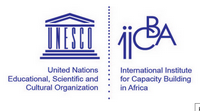 Source : UNESCO IICBA
Source : UNESCO IICBA
UNESCO IICBA and TALENT organized a webinar on “Conducting Learning Assessment during School Closures”. The objectives were to discuss and share experiences on the strategies and the challenges of conducting learning assessment during the crisis. The webinar also aimed to enhance the network for knowledge sharing across national borders.
Download the report (1.18 Mo, 5 pages)
- Détails
- Écrit par : G. Puiségur
- Catégorie : Unesco En
- Clics : 1078
 Source : UNESCO Multisectoral Regional Office of Abuja
Source : UNESCO Multisectoral Regional Office of Abuja
A digital platform of open education resources for students, teachers, school administrators, and parents, called “BELUGA”, was launched on 25 June 2020 by the UNESCO Multisectoral Regional Office for West Africa (UNESCO MSRO Abuja), in collaboration with Ganndal Editions and the Association for the Promotion of African Open Educational Resources (APRELIA).
As one of the many concrete actions initiated by UNESCO MSRO Abuja to support the education systems in the region in effective response to COVID-19, BELUGA was initiated for the benefit of all school community actors, including students, parents, teachers, and school administers. It stores and presents a rich collection of African Open Educational Resources developed conjointly by Ganndal editions, an African based publishing company and a French based open educational resources network, tailored for the African educational and pedagogical needs. These endogenous resources are put at the service of the ongoing transformation of teaching-learning processes, with a view to enable effective, quality learning for all learners and equip schools with the possibility of sharing pedagogical and school development experiences that place the learning and professional co-development of all stakeholders at the heart of the school’s project.
Since its launch, BELUGA has received extensive attention and praises.
- Détails
- Écrit par : G. Puiségur
- Catégorie : Unesco En
- Clics : 887
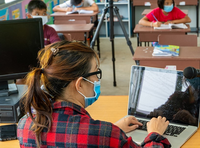 A toolkit for school leaders
A toolkit for school leaders
Source : UNESCO
This Toolkit was designed for school leaders to support and protect teachers and education support staff in the return to school following COVID-19 related closures. While aimed primarily at school leaders, the Toolkit is also potentially useful for teachers and education support staff to better understand their roles
and responsibilities in back-to-school efforts. It is based on the seven dimensions laid out in the joint UNESCO/Teacher Task Force/ILO policy guidance found in the document Supporting teachers in back-toschool efforts - Guidance for policy-makers.
The Toolkit was designed to meet the needs of schools ranging from early childhood to secondary education, yet it can also be applied in other contexts, including technical and vocational education and training institutions, and non-formal education settings.
- Détails
- Écrit par : P. Puiségur
- Catégorie : Unesco En
- Clics : 878
Lire la suite : Supporting teachers in back-to-school efforts
The COVID-19 pandemic has revealed vulnerabilities; it has also surfaced extraordinary human resourcefulness and potential. Decisions made today will have long-term consequences for the futures of education. Choices must be based on a humanistic vision of education and development, and human rights.
The International Commission on the Futures of Education’s new report Education in a post-COVID world: Nine ideas for public action presents ideas for concrete actions today that will advance education tomorrow.
“COVID-19 has the potential to radically reshape our world, but we must not passively sit back and observe what plays out,” said Ethiopian President H.E. Ms Sahle-Work Zewde, Chair of the International Commission on the Futures of Education. “Now is the time for public deliberation and democratic accountability. Now is the time for intelligent collective action.”
- Détails
- Écrit par : G. Puiségur
- Catégorie : Unesco En
- Clics : 847
Lire la suite : Education in a post-COVID world: Nine ideas for public action
 Source : Apréli@, booklet for school leaders : Transforming teaching-learning process, Leading the use of ICTs in your school
Source : Apréli@, booklet for school leaders : Transforming teaching-learning process, Leading the use of ICTs in your school
Extract (pages 9 and 10) :
"In 2018 UNESCO, industry leaders and global subject experts updated the UNESCO ICT document: the UNESCO ICT Competency Framework for Teachers that was published for the first time in 2008 and revised in 2011.
This new edition takes into account the 2030 agenda for sustainable development. It also includes OER and addresses inclusive education.
The UNESCO Framework emphasises that it is not enough for teachers to have ICT skills and to be able to pass them on to their students. Teachers must be able to help students become collaborative, problem-solving and creative learners who use ICTs to be effective citizens and actors/actresses in the work market.
The ICT CFT underlines the fact the teacher professional development should be understood as a life-long process.
The Framework consists of 18 competences organised according to the six aspects of the teaching professional practice over three levels of teachers’ pedagogical use of ICT.
The six aspects of the teaching professional practice are:
- Détails
- Écrit par : P. Puiségur
- Catégorie : Unesco En
- Clics : 940
Lire la suite : UNESCO ICT Competency Framework for Teachers
 This document, the product of the international cooperation between OIF, UNESCO, ALEC-SO , OEC and UVT, is an example of an effective partnership for sharing knowledge to support quality lifelong learning opportunities needed.
This document, the product of the international cooperation between OIF, UNESCO, ALEC-SO , OEC and UVT, is an example of an effective partnership for sharing knowledge to support quality lifelong learning opportunities needed.
This current publication is instrumental in supporting training to have the competencies for using OER - outlining exactly how to find, use, create and share openly licensed resources by stakeholders.
It serves as a vital capacity building tool that can ensure that the educational community can quickly have the skills necessary to make OER an integral part of their pro-fessional practice.
These are vital skills for ensuring that the innovations of OER are properly harnessed to bring forward the Sustainable Development Agenda.
- Détails
- Écrit par : G. Puiségur
- Catégorie : Unesco En
- Clics : 830
Lire la suite : OER trainer's guide : competency framework open educational resources
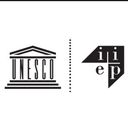 This document is part of a series of five, intended to support countries with advice on ensuring access to quality education in the time of COVID-19. See the series
This document is part of a series of five, intended to support countries with advice on ensuring access to quality education in the time of COVID-19. See the series
Professional and social support for teachers, learners, and their families is an important part of education’s response to a crisis such as the COVID-19 pandemic. Support needs to be appropriate, effective, and ongoing to ensure that learning continues and that the post-crisis recovery is, in turn, as straightforward as possible.
- Détails
- Écrit par : G. Puiségur
- Catégorie : Unesco En
- Clics : 844
Lire la suite : Provide continuous support to teachers, learners, and their families
 Source : UNESCO-IIEP
Source : UNESCO-IIEP
This document is part of a series of five, intended to support countries with advice on ensuring access to quality education in the time of COVID-19.
It highlights the importance of adopting a flexible learning approach. Here are some suggestions on how to do this.
- Détails
- Écrit par : G. Puiségur
- Catégorie : Unesco En
- Clics : 892
 Biosphere
Biosphere
Source : UNESCO Regional Office for Eastern Africa
Five short YouTube videos about Biosphere
(Primary, secondary)
- Détails
- Écrit par : P. Puiségur
- Catégorie : Unesco En
- Clics : 850
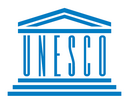
Chemistry : Access the material
- Détails
- Écrit par : G. Puiségur
- Catégorie : Unesco En
- Clics : 763



